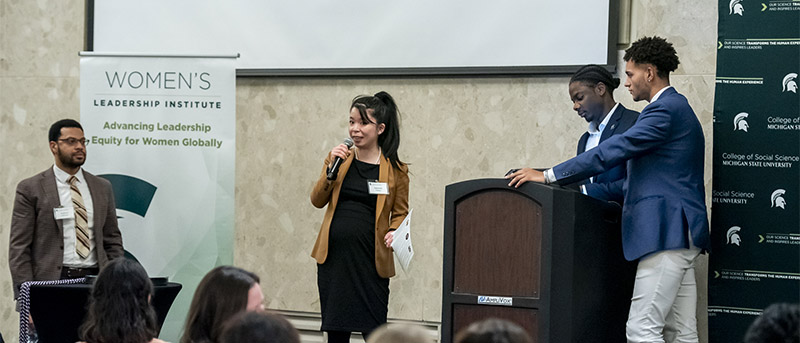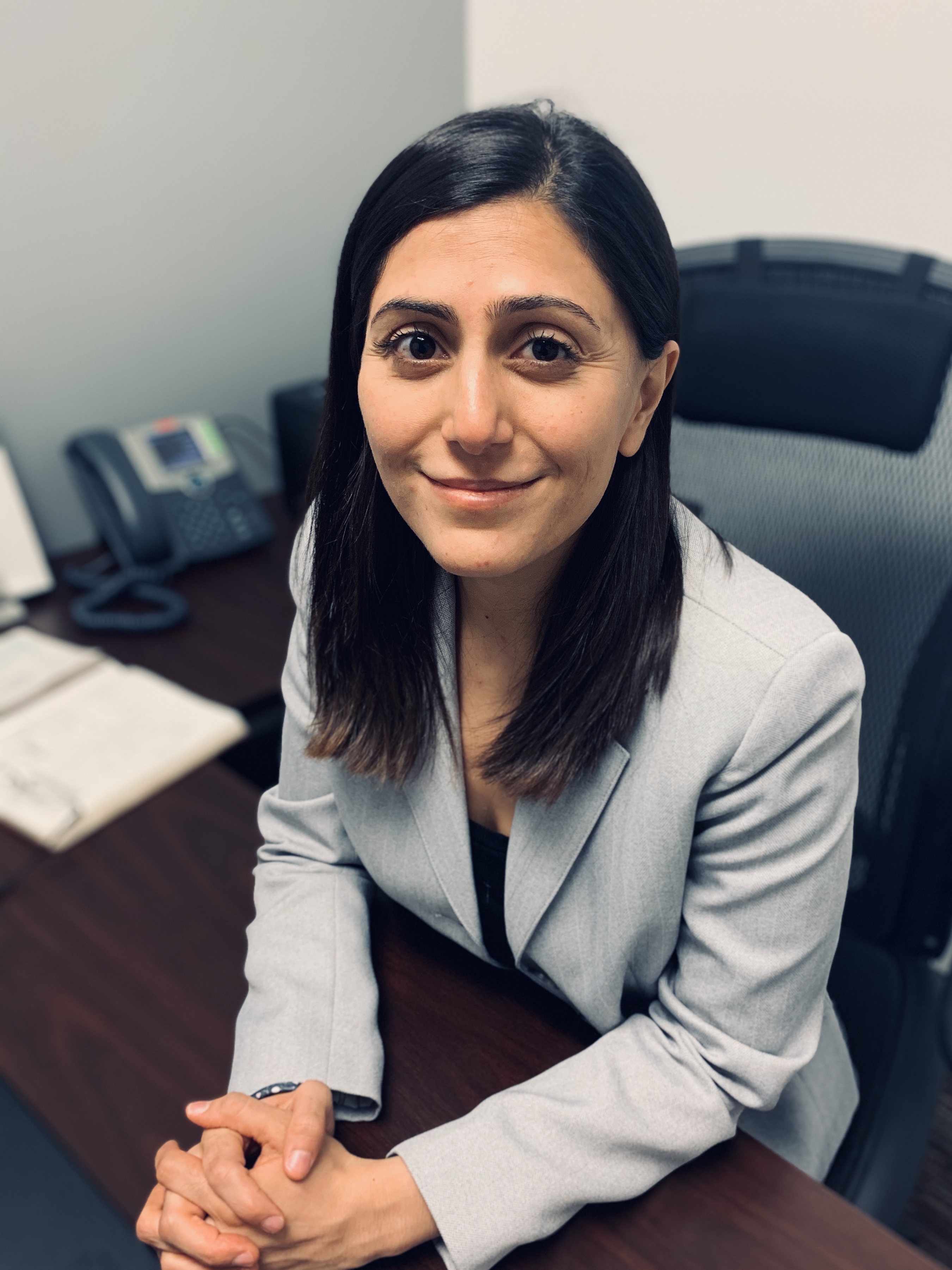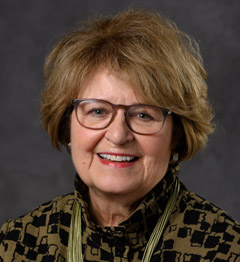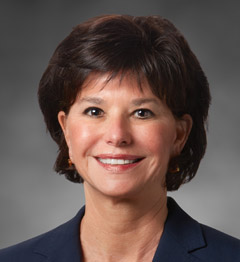Tomlanovich-Dimond Research Equity Fund

The Women's Leadership Institute held an event honoring their graduating student cohort as well as hosting a panel on Healthy Leadership, Support, & Community. HRLR faculty Dr. Amanda Chuan introduced research students Devian Johnson and graduate student Andrew S. Johnson.
Scientific data helps clarify/legitimize both prescriptive and proscriptive strategies to 'get equitable', and the WLI is now a contributor to this journey.
The Tomlanovich-Dimond Research Equity Fund will provide up to $10,000 total ($5,000 for the faculty member and $5,000 for the undergraduate student) for the academic year to support a research project conducted by a faculty member and undergraduate student team that builds upon the vision of the Women’s Leadership Institute to advance leadership equity for women globally.
The funded proposal may be awarded for a research project that focuses on topics, including but not limited to, gender equity and intersectionality with race, ethnicity, social class, and/or other social identity points.
To learn more and apply:
Award Winners
2024 Research Teams
-
Survivors to Leaders: Co-produced Models for Combating Human Trafficking
Principal Investigator: Dr. John Waller
Undergraduate Investigator: Sumayia Imand
-
Political engagement and strategies of Muslim women from three different regions
Principal Investigator: Dr. Nura Ahmad Sediqe
Undergraduate Investigator: Elaina Rankin
2023 Research Teams
-
The Role of Social Ties in the Underrepresentation of Women and Students of Color in STEM Majors
Principal Investigator: Dr. Amanda Chuan, Michigan State University
Undergraduate Investigator: Devian Johnson, MSU, Human Capital and Society major; additional degree in Psychology, Leadership of Organizations minor
-
Femal Farmworkers in Western Michigan and the Challenges to Accessing Safe, Sanitary and Affordable Family Housing
Principal Investigator: Dr. Deyanira Nevarez Martinez, Michigan State University
Undergraduate Investigator: Vivian Morales, MSU, Urban and Regional Planning major; Cities: Environment, Design, and Society minor
2022 Research Teams
-
Laboratories of Representation: Women and Candidates of Color in State and Local Elections
Principal Investigator: Dr. Eric Gonzalez Juenke, Michigan State University
Undergraduate Investigator: Mikayla Stokes, MSU, PLS major; Gender and Global Change
Dr. Juenke and Political Science student Mikayla Stokes submitted a research proposal entitled "Laboratories of Representation: Women and Candidates of Color in State and Local Elections."
Dr. Juenke is an associate professor of Political Science and a core faculty member of Chicano/Latino Studies.
The award, sponsored by the Women's Leadership Institute at the College of Social Science, provides Dr. Juenke with $5,000 "to support research costs." In addition, Mikayla will receive a $5,000 scholarship.
-
Fighting for Equity against All Odds: Somali Muslim Women Standing Up against Amazon
Principal Investigator: Maite Tapia, Associate Professor, School of Human Resources and Labor Relations, College of Social Science
Undergraduate Investigator: Abbigail Foss, Human Capital and Society, College of Social Science
School of Human Resources and Labor Relations Associate Professor Maite Tapia and Human Capital & Society student Abbigail Foss, are winners of the Tomlanovich award for their research proposal entitled "Fighting for Equity against All Odds: Somali Muslim Women Standing Up against Amazon".
Their focus is specifically on an Amazon fulfillment center outside of Minneapolis with a large presence of Somali Muslim women in the workforce. By centering the voices of these Amazon workers, they want to examine Amazon’s extensive use of technology and public and private security for the purposes of worker control.
2021 Research Teams
-
Central banking and gender-based credibility
Research team Dr. Cristina Bodea and Dr. Andrew Kerner with undergraduate students Zac Ozormoor and Lillian Meng are the winners of the inaugural 2021 Women's Leadership Institute Tomlanovich Equity Research Fund. The team's research will explore the disparities and discrimination that women face both politically and professionally, domestically and abroad.
Dr. Bodea and Dr. Kerner: Central banking and gender-based credibility

 Dr. Bodea, Dr. Kerner (both pictured left), Zac, and Lilian's research will explore the absence of women in leadership roles in central banking in the United States, Europe and Japan. While in these countries, women often play an influential and visible role in politics and the behind-the-scenes of central banking, Dr. Bodea and her team believe it could have something to do with perceived credibility.
Dr. Bodea, Dr. Kerner (both pictured left), Zac, and Lilian's research will explore the absence of women in leadership roles in central banking in the United States, Europe and Japan. While in these countries, women often play an influential and visible role in politics and the behind-the-scenes of central banking, Dr. Bodea and her team believe it could have something to do with perceived credibility. "A big part of being an effective central bank is convincing the market that you are committed to avoiding inflation and otherwise capable of managing the economy," explained Dr. Kerner.
"Because central bankers typically cannot be fully monitored, generating credibility around that is often a matter of projecting that the central banker is the credible 'type.'""We suspect that this is a gendered concept, and one that under some circumstance makes it difficult for women to get appointed. So, our experiments are meant to find out, how biased are people against female central bankers?"
The team will be employing surveys throughout the U.S., Europe and Japan to gather the data needed to address this important question.
Research Summary
Gender Bias and Public Communication on the Economy: “The US Economy is On the Mend”, SHE notes – Is Anyone Listening?
Dr. Cristina Bodea, Dr. Andrew Kerner, Lillian Meng, and Zac OzormoorOur project consists of two parts: fielding American survey experiments and expanding our historical database of central bankers.
We are making terrific progress on the database. We hired our two RA (Lilli and Zac) and they have been tremendously helpful. We've coded about half the countries we had in the sample for years 2016-2020, and are chipping away at the other half. We end up being able to expand this coding beyond the countries in our original sample, which would be wonderful.
We've also made substantial progress on the experiments, though we are in a bit of a holding pattern at the moment. We had some real successes with our European survey (which is the basis of our American survey) and those results are written up here. We were able to write up an American version of that survey that is ready to field. Unfortunately, we are using a New-Orleans-based survey vendor, Lucid, and their workflow was severely impacted by the recent hurricane, which backed things up substantially. As a result, we are still in the phase of the approval process in which MSU needs to coordinate payments with Lucid. I'm hopeful that will clear up this week, at which point we will immediately get our pilot surveys in the field. -
How relationships impact policy for women of color
Research team Dr. Nazita Lajevardi and undergraduate student Jasmine Jordan are the winners of the inaugural 2021 Women's Leadership Institute Tomlanovich Equity Research Fund. The team's research will explore the disparities and discrimination that women face both politically and professionally, domestically and abroad.
Dr. Lajevardi: How relationships impact policy for women of color
 Dr. Lajevardi (pictured left) and Jasmine's research will focus on whether or not contact with women of color impacts how Americans understand the intersectional discrimination that women of color face in social, political, and economic spaces. The study will look at two different kinds of contact - contextual, meaning passive relationships, and personal - to see which is more impactful.
Dr. Lajevardi (pictured left) and Jasmine's research will focus on whether or not contact with women of color impacts how Americans understand the intersectional discrimination that women of color face in social, political, and economic spaces. The study will look at two different kinds of contact - contextual, meaning passive relationships, and personal - to see which is more impactful."I am humbled to receive support from the Women's Leadership Initiative and the Tomlanovich Equity Research Fund to study how contact with women of color affects a number of outcomes alongside Jasmine Jordan, an incredibly brilliant and talented undergraduate star at MSU," said Dr. Lajevardi.
"As women of color, we have both been interested in researching contact theory and improving sociopolitical outcomes for marginalized communities. And the opportunity to work with such a brilliant student and in further improving our understanding along intersectional lines about issues that affect women of color is the greatest privilege I could ask for."
The team will be using multiple qualitative surveys to better understand how women of color fare in their workplaces, their day-to-day lives, and American democracy as a whole.
The WLI Tomlanovich Research Equity Fund grants $5,000 to faculty teams and undergraduate students whose research builds upon the Women’s Leadership Institute's vision to advance leadership equity for women globally. All social science faculty are eligible to apply, and selected researchers are given the opportunity to present their research to the WLI board, at the University Undergraduate Research and Arts Forum (UURAF), and at one academic conference of their choice.
Research Summary
“Why Contact Matters for the Democratic Incorporation of Women of Color”
Dr. Nazita Lajevardi and Jasmine JordanOur project asks one important and under explored question: “Does personal and contextual contact with women of color shape the levels of discrimination that other Americans perceive women of color to experience in political, social, and economic spaces in the US?” Contact between people is fundamental to societies. While numerous policies in pursuit of democratic incorporation mean to improve outcomes for minorities in the US, setbacks remain, particularly for women of color, who report higher levels of discrimination, are frequently targeted by politicians and policies that single them out, and are disparately affected in health outcomes and in the labor market. Scholars argue that contact is an important mechanism for prejudice reduction and for socioeconomic mobility, though they rarely distinguish between personal and contextual contact, often fail to develop historical accounts and group-specific theories, and to date have neglected women of color --a most important group that has been overlooked by the scholarly literature.
With this WLI grant we conducted several large original surveys of Americans and evaluate whether contextual contact--or the types of passive interactions that individuals have in the neighborhoods where they reside--and personal contact---or the type of active contact that individuals form in schools, in social settings, in families, and in the workplace--with women of color affects individuals’ understanding of the levels of discrimination that individuals perceive women of color to experience in politics, day-to-day social interactions, and the workplace. Our findings reveal that interpersonal contact with women of color matters for individuals' understanding of the discriminatory spaces and dynamics that they encounter. Importantly, it is among the most important indicators for Democrats, Whites, and Republicans, and has the largest effects for the latter group. Perhaps unsurprisingly, interpersonal contact matters less for Non-White Americans, and especially for Non-White women, who not only have more interpersonal contacts with women of color, but also perceive there to be greater discrimination in the domains evaluated. Together, the results of this work are important for policymakers, activists, and academics alike, insofar as they highlight the need for reducing echo chambers, increasing contact among majority and minority groups, as well as communicating experiences outside of siloed spaces.
Supporter Spotlight
The Tomlanovich-Dimond Research Equity Fund was born out of the passion and commitment to advance leadership equity for women globally by using thought leadership and empirical research as the catalysts. The two primary supporters of this fund, Ann Tomlanovich and Margaret Dimond, both self-proclaimed lifelong learners, exemplify a passion for growth through scholarship. With multiple degrees between them and numerous hours logged reading, training, and growing, it is clear to see learning is what inspires them. Throughout their careers, both Ann and Margaret have shown a commitment to excellence. They have worked at the top of their industries with numerous accolades from the professional world. However, it is not their c-suite titles that mark them; it is their dedication to giving back, their work empowering women leaders, and their efforts to support and enrich their communities. Michigan State University, College of Social Science, and the students represent communities close to both of their hearts. Together in 2021, the inaugural year of the Tomlanovich Equity Fund, Ann worked to establish the fund, and Margaret helped to grow the fund, expanding it to support two faculty and undergraduate research teams. This collaboration, this passion, and this commitment characterize Ann and Margaret and their dedication to igniting women leaders and advancing women's equity globally.

Ann Tomlanovich, J.D.
Ann Tomlanovich holds a Bachelor of Science in Anthropology from Michigan State University, an M.A. in Organizational Management from Central Michigan University, and a J.D. from Detroit College of Law, now MSU College of Law. Tomlanovich has held director level positions in customer satisfaction, supply chain and profit and loss business units in Chrysler Group before retiring in 2007. Ann currently serves on the College’s Women’s Leadership Institute Executive Board of Advisors.

Margaret Dimond, PhD
Margaret Dimond, PhD, is the President of E.W Sparrow Hospital, headquartered in Lansing, Michigan. Margaret earned her Bachelor of Arts from St Mary’s College, Notre Dame, Indiana, and a Master of Social Work from Boston College, Chestnut Hill, Massachusetts. She has a Master of Public Administration from the University of Michigan and a Doctor of Philosophy from Michigan State University. She was recently honored as a Distinguished Alumnae by the Michigan State University College of Social Sciences. She serves on the Oakland University Board of Advocacy and Resource Development, and is a trustee of Olivet College, Mercy High School, and University of Detroit Jesuit High School. She is also a board member of Dearborn Federal Credit Union. Margaret currently serves on the College’s Women’s Leadership Institute Executive Board of Advisors.
MSU programs and activities are not restricted based on race, sex, color, ethnicity, national origin or other protected personal identity. This opportunity is open to students without restriction or preference based on protected personal identity.

